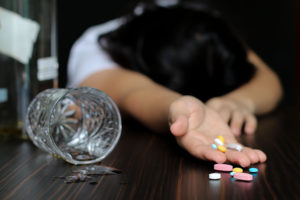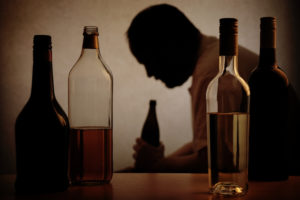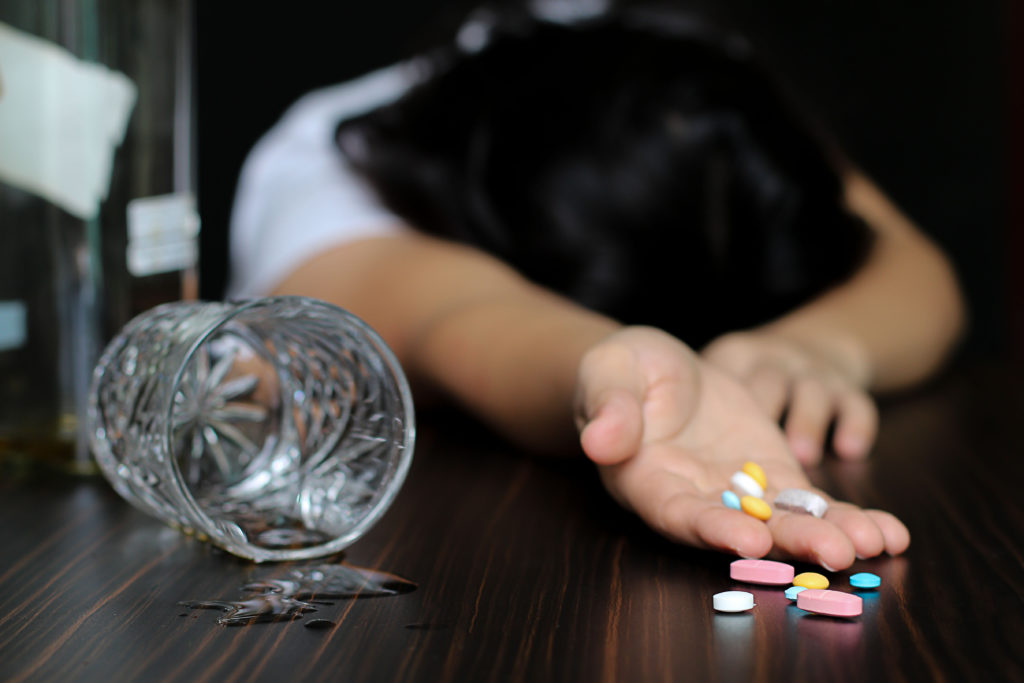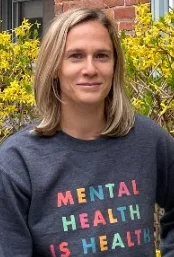LGBTQ Substance Abuse Treatment
Table of Contents
- LGBTQ Substance Abuse Treatment
- Growing Up Gay and Abusing Drugs
- LGBTQ People Are Rarely Offered Addiction Support
- LGBTQ Addiction Rates Are Greater Than National Rates
- Alcohol is the LGBTQ Community’s Drug of Choice
- Co-Occurring Disorders and LGBTQ Communities
- LGBTQ Individuals Sidestep Discussions of Sexuality with Medical Providers
- New Support Systems Are Essential for Recovery of LGBT Addicts
- Drug and Alcohol Abuse Is Part of “Gay Culture”
- The Easy Availability of Drugs and Alcohol Thwarts Sobriety
- Overdoses Are Frequent Among Transgender People
- LGBTQ: The Rehab Life
- Rehabilitation Centers Should Not Avoid or Pigeonhole LGBTQ People
- How to Help LGBTQ Addicts Seek Rehabilitation
- I Cherish Every Day in LGBTQ Recovery
- Medically Reviewed By

In the past, I had called 911 for him; that night, he’d called 911 for me. I was so far out of it that I couldn’t focus on his face, but I felt his intense gaze. I could sense his concern. I checked out, back into my coma, and knew inside that I would not be leaving the hospital the next day. But was there really such a thing as LGBTQ substance abuse treatment? Treatment that could help me?
Learn More About Your Options For Treatment
877-959-7271
Growing Up Gay and Abusing Drugs
I identified as gay before my twelfth birthday and started drinking alcohol at 14. By the time I turned 16, I was smoking cigarettes, weed, and other narcotics. At 18, I started up with cocaine. During college, I feasted on every drug except for heroin. My drugs of choice? Alcohol and opiates, including prescription painkillers that I had been prescribed for injuries or even anxiolytics that I had squirreled away for occasional binges. I purchased many “know your body” self-help books throughout adolescence. Each book barely discussed homosexuality, most often describing gay as a “hormonal imbalance” that would subside with maturity. Therefore, I never discussed it.
I Hid in Plain Sight for a Decade
For almost a decade, I didn’t share with anyone that I was gay. While some of my closest friends and relatives knew that I abused substances, they didn’t realize how perilous the situation had become.
I lived in secret for most of my life. I had become—and I still am—masterful at disguising my feelings. I pretended to be a “normal guy” and had convinced everyone around me that things were fine.
As a gay man, I learned to lie as a defense mechanism. My lies protected me from the violence I would undoubtedly have suffered at the hands of my father, grandfather, and boys at school if they had known my sexual preference. I still lie today. It’s my defense mechanism against eviction by my landlord or termination from my job.
To this day, I struggle with being transparent with those I love and trust, even though I’ve been uncloseted for years. However, I’ve been able to disentangle my identity from my addiction – thanks to LGBTQ substance abuse treatment.
LGBTQ People Are Rarely Offered Addiction Support
There’s a sad truth. LGBTQ people are rarely recognized or offered support that’s offered to various minority groups. They simply don’t have the support network they need to thrive. Many in our community were raised by adults who publicly eschewed anyone who was not straight. We did not find comfort in church, school, or even family settings. In fact, those were dangerous waters for us.
Find LGBT Friendly Rehabs For Yourself or a Loved One
877-959-7271
Alcohol Became an Escape
Because of that lack of empathy, LGBTQ people cope with their self-shame through alcohol or drugs. For me, I used alcohol to escape the hostility that I sensed and to numb my fear of being gay.
For many gay addicts, especially those whose families believed that homosexuality was immoral, the bigotry devalued our own worth and convinced us to beat ourselves up inside. Heterosexuals assume that they are “normal” and that homosexuals are “perverse.” The damage to the psyche of a homosexual leaves us open to using drugs as a crutch against that cruel reality.
Three Rounds of Acute Alcohol Poisoning
Before I checked in for rehab for alcohol and drugs, I’d survived a year of acute alcohol poisoning. This happened three times with my BAC just shy of 0.40%, a level that sharply increases the risk of death from respiratory arrest. Those three times only account for the instances when someone found me and called 911. Most mornings, I’d awaken outdoors or in a strange apartment, covered with wounds on my body and hurt in my heart.
Substance Abuse Surveys Don’t Generally Ask About Sexual Orientation
Members of the gay community find ways to keep ourselves safe among strangers. While legislation now exists to protect us, many among us remain cautious about revealing too much of our authentic selves.
Most doctors and mental health care providers don’t see through our facades. This means that studies of LGBTQ focus groups don’t provide clear results. In fact, only a handful of addiction surveys pose any questions about sexual orientation or know how to account for this factor. In fact, there aren’t even firm statistics on exactly how many LGBTQ people live in the USA. Experts estimate a range from 1% to 10% and don’t differentiate between gay, lesbian, transgender, bisexual, transgender, or other non-conforming people. That means most people aren’t even aware of specific LGBTQ substance abuse treatment.
Recovery is Possible. Review Your Options Today
877-959-7271
LGBTQ Addiction Rates Are Greater Than National Rates
While there’s a lack of data, mental health professionals agree that LGBTQ addiction rates are dramatically higher than the national rates of heterosexual people. That’s why specific LGBT substance abuse treatment is so critical.
United States data shows that about 10% of people over age twelve have abused alcohol or drugs. However, those numbers rise over 30% in LGBT people. This upswing is most apparent in bisexual and transgender people, females, and teens under 18; the latest NIH reports that, respectively, each of these groups is 340%, 400%, and 190%
Alcohol is the LGBTQ Community’s Drug of Choice

The most alarming trend in abuse is the use of methamphetamines which are being injected. This leads to upswings in the spread of HIV and hepatitis C. Of course, these are the illnesses that the LGBTQ community fears the most.
When seeking rehab or detox, specific LGBTQ substance abuse treatment is important. It’s not necessarily the drug of choice that dictates the best rehab, but the facility. LGBTQ substance abuse treatment is about looking at the core issues with one’s self-image, which is often tied to our sexuality or greatest insecurities.
Co-Occurring Disorders and LGBTQ Communities
Sadly, STDs are not the sole co-occurring disorders in gay addicts. A majority of us battle mental health issues that are also common among straight addicts: mood disorders, psychiatric ailments, and eating disorders.
In fact, I struggled with anorexia to regain some control over my life, and even today I suffer with anxiety and depression. Additionally, I battle PTSD resulting from years of abuse.
All of these factors are triggers for addiction for the gay community just as in the straight community.
We’re isolated by an internal struggle to balance sexuality, gender identity, self-image.
Dual Diagnosis Treatment Is Available
877-959-7271
LGBTQ Individuals Sidestep Discussions of Sexuality with Medical Providers
LGBTQ people often complicate their addiction and other health concerns by lying about our health concerns. This is because we fear the stigma that’s placed on us by medical providers. The sidestepping of the truth to our care providers lets our co-disorders slide by, unrecognized and untreated.
I’m a healthcare professional. I know better. Yet, I avoid discussing my sexuality with my doctor. I don’t believe he’s biased. However, I feel he is uneducated about the gay experience and ill-equipped to deal with the discussion.
This avoidance impeded a healthy conversation about my real health risks and increased the chances of future complications.
New Support Systems Are Essential for Recovery of LGBT Addicts
Another problem that plagues young LGBTQ people, especially men of color who are forced to leave intolerant homes, is homelessness. Federal reports indicate that LGBT youth comprise 20% – 40% of homeless people under age eighteen.
Therefore, LGBTQ youth find a “family of choice” to replace the family they’ve left behind. This can be distant relatives, friends, or partners aside from their immediate biological family. To this day, I’m still more comfortable with my family of choice, who sheltered me when my family home wasn’t safe than I am to my own family.
Finding a new, non-traditional support system is critical to the recovery of LGBTQ addicts. LGBTQ substance abuse treatment is not just rehab, it’s the entire journey of self-discovery.
Drug and Alcohol Abuse Is Part of “Gay Culture”
What is “gay culture?” This overreaching term is disputed even within the gay community. Nevertheless, the variety of practices and customs among the gay community is a primary trigger to drug and alcohol abuse.
Drugs are widespread at raves, circuit parties, and throughout the underground ballroom culture. They provide a social context that’s accepted by the community. This, indeed, is a complex reality that I have firsthand experience with.
It’s safe to say that not only is alcohol and drug abuse tolerated by my community but it’s also considered an essential social amenity. Drugs are prized for their ability to alter the mind, lower inhibition, and create a feeling of safety so that LGBTQ people feel empowered to behave impulsively, or even promiscuously, without feeling judged.
The Easy Availability of Drugs and Alcohol Thwarts Sobriety
Drugs used in LGBTQ sex to stimulate euphoria. Thwarts ability to seek recovery, stay sober. That’s what makes it so hard sometimes to seek proper LGBTQ substance abuse recovery – the tie-in with parts of our culture makes it difficult to return to the scene.
Alcohol and drugs are frequently used in LGBTQ sex to stimulate a sense of euphoria. This thwarts our ability to seek recovery and stay sober. In fact, some gay men view sobriety as a damper on their relationships or social lives. This increases the rate of relapse.
One ex-boyfriend of mine had checked into many halfway houses in an effort to get sober because each time he went back, he was offered opportunities to use again. This is a common fate of non-straight men, who love to share methamphetamines. More than once, I’ve seen friends overdose fatally at a party in the presence of lovers and friends.
Overdoses Are Frequent Among Transgender People
Lesbians, on the other hand, experience high rates of alcohol abuse. They have a different definition of “normal” and are prone to long spans of chronic abuse with fewer overdoses.
Overdoses are by far most commonly suffered by transgender individuals. Is there a correlation between this statistic and the increased rates of discrimination and violent attacks against them?
LGBTQ: The Rehab Life
According to SAMHSA, the only LGBTQ group that’s more willing to enter rehab than the straight population is lesbians. Bisexual, transgender, and gays are less likely to ask for help. It’s not yet been determined if this is because of the fear of stigmas, different behaviors, or the types of drugs abused by each of these groups.
Regardless, successful rehab programs will not reach the LGBTQ community if they don’t understand the unique variables that surround addiction in the community. In my personal experience, the most successful rehabilitation programs are those which affirm the gay lifestyle rather than those which tolerate it.
Let’s Find The Right Rehab For You
877-959-7271
An Ex-Boyfriend Died of Overdose After His Parents Kicked Him Out
One of my first boyfriends was in rehab but struggled with recovery because the program completely avoided the topic of his sexual orientation. His family was intolerant, and he remained closeted. After he was discharged from rehab, he found himself with no support network. Several weeks after his rehab ended, his parents kicked him out of the family home. He died shortly after from an overdose of opiates.
The support around a person is just one part of LGBTQ substance abuse treatment, as important as rehab or detox.
Counselors Focus More on Sexual Promiscuity Than Substance Abuse
Later in life, I befriended a man who attended an LGBTQ rehab program. My friend was both HIV-positive and suffered from manic depression. Despite the gay-only setting, he was stigmatized. He states that the counselors placed more emphasis on his sexual promiscuity than his substance abuse. Today, he’s still alive, but he still struggles and relapses regularly.
One Sponsor Stated That My Homosexuality Was a Result of Alcoholism

Once I finally did join a group, my sponsor tried to “convert” me to straight. He insisted that my sexual orientation was a byproduct of my alcoholism. This obsession with “curing” gays through rehab confuses gender identity with the disease of addiction.
We must, at all costs, avoid embarrassing and ostracizing those people who need help.
On the Ride to the Rehab, I Realized That I Was Loved
The day after an overdose was my intervention. It only happened because I’d come close to dying that night. I can’t remember very much of what was said to me. I was still numb from the overdose. Regrettably, I can’t recall much of what happened or what was said – I felt numb and far away.
But I remember the trip to the rehabilitation facility. I knew the road well because I had watched too many close friends and ex-lovers driven down it before. I felt fearful for the first time in many years. And yet I felt somehow safe because I realized how much I was loved.
Begin Your Recovery Journey Today
877-959-7271
Rehabilitation Centers Should Not Avoid or Pigeonhole LGBTQ People
I finally found a fair middle ground, a rehab center that neither avoided nor pigeonholed LGBT people and accepted their unique barriers. My best therapy sessions were with a counselor who was a gay man like me. He led a group with mixed individuals. I was not singled out or overlooked.
I shared my sexual preference with my counselor, trusted him, and allowed him to address my therapeutic needs. This doesn’t mean that I think only gay counselors should work with gay people. My point is that this particular program was strong because it embraced diversity and took a balanced approach. It involved my family of choice but respected my professional privacy. It challenged me to accept responsibility for my actions while it avoided passing judgment.
How to Help LGBTQ Addicts Seek Rehabilitation
It’s unfortunate, but there are high hurdles to encouraging LGBTQ addicts to find appropriate rehabilitation, specific LGBTQ substance abuse treatment, and to preventing relapse in a society that’s filled with hate crimes. While younger generations seem to be more forthcoming about their sexual preferences, it remains to be seen if they will remain vocal when vulnerable. Keeping silent is a significant obstacle for LGBTQ people.
LGBTQ substance abuse treatment is not the end-all be-all, either. Without introspection, even catered towards our state of mind and identity, LGBTQ substance abuse treatment can do little without the full commitment of the patient.
The Year After I Left Rehab My Support System Splintered
In time, I conquered my addiction. A year after I left the rehab program, my boyfriend left me, and my family of choice made a cross-country move, splintering my support system.
I relapsed a handful of times before finally getting clean. I had doped myself to cope for over a decade, so it took me months to become reacquainted with my own body. I pressed on and learned. I found healthy ways to participate with the gay community. I pursued my career, reignited pastime I’d abandoned long ago, played sports, and learned to meditate. I now loved alone time and learned not to feel alone.
I Cherish Every Day in LGBTQ Recovery
I still have memory lapses of those nights that I drank until I passed out. That’s time I will never get back. However, I now have a profound desire to remember. Every night I close my eyes unafraid to wake back up. I cherish every day.
– Mason Michael
Verify Your Insurance Absolutely Free
877-959-7271
Rachael Goldstein has been a freelance writer for more than 10 years, having written for Find Addiction Rehabs for the past two years. She specializes in writing about the law, mental health, psychology, and addiction. She is the owner and author of the website www.addicted-to-sobriety.com. Rachael is also a licensed attorney in the state of Pennsylvania.


